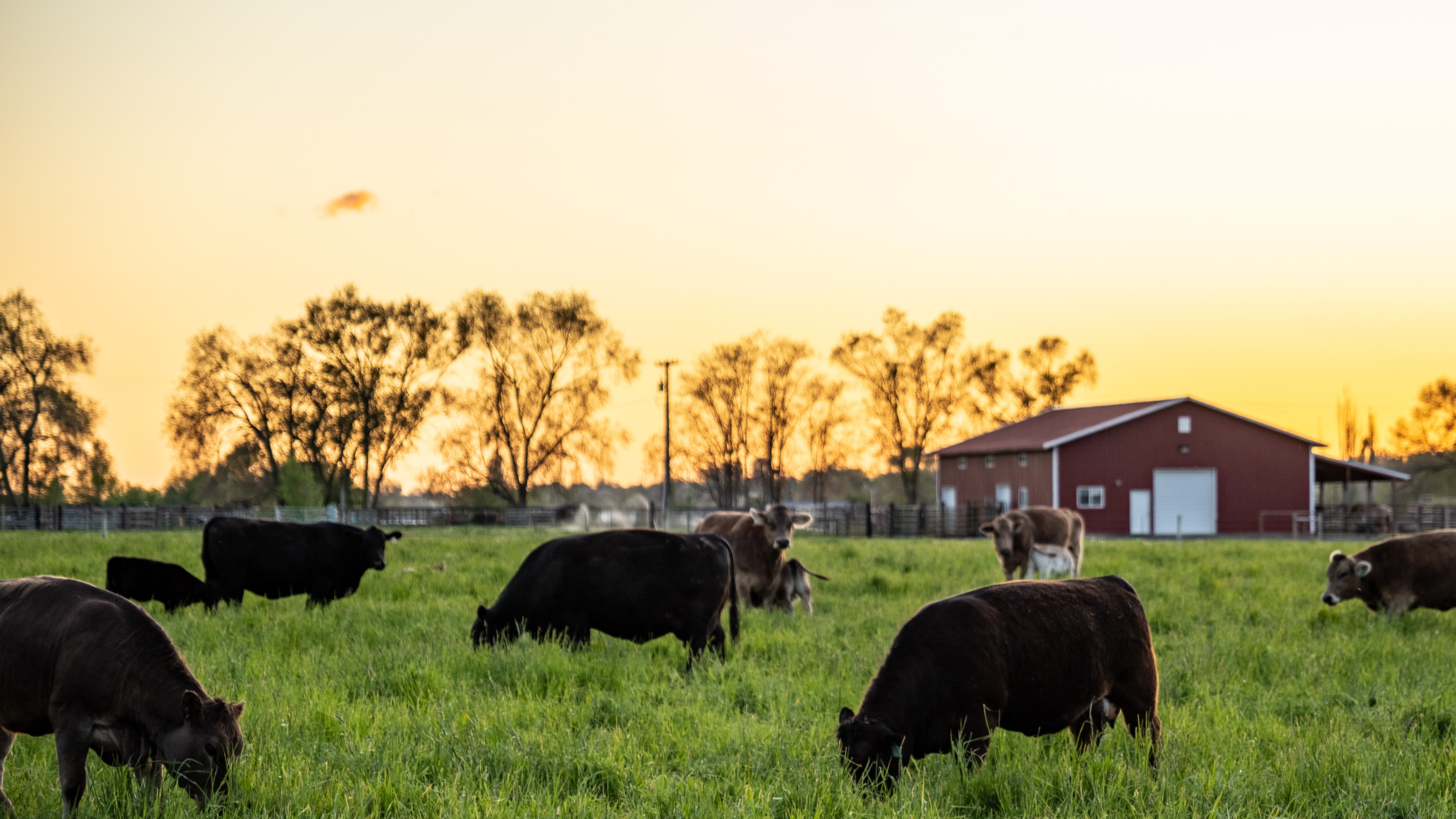Beef Cattle Care
Veterinarians play an everyday role in taking great care of beef cattle on the farms and ranches of Washington state. From managing feedyards to consulting with farmers and ranchers to proactively plan good herd health, they lead with their hearts and science to help raise beef, better than ever.
veterinarians and cowboys
It's pretty simple, actually. Great cattle care starts with people who care. Our state is home to dedicated animal experts who have made improving animal welfare their life's work. Read and watch on to meet a few of these health professionals who love working with cows, and cowboys to get the job done and done well on behalf of the animals they watch over.
"The most important part about cattle care on a farm or ranch is about respect for the animals. As long as you respect them and try to understand their behavior and what they need, it keeps things low stress for the people and the animals." - Helen Floren, DVM
cattle care experts
These three Washington veterinarians are the living example of how great beef cattle health and care is accomplished. All three were educated at Washington State University's nationally ranked College of Veterinary Medicine. All three are united in the goal of making a positive impact on the welfare and health of Washington's beef cattle herd, from their unique positions within the beef community. In the clinic, corrals or lab, these professionals tap the abundance of science and experience available today and put it to work on behalf of the cattle in their care.
Dr. Fred Muller
Fred and his wife Tanya are both practicing veterinarians. Their dream when entering vet school? Establish careers that would allow them to also have a cattle ranch of their own. With three nearly grown daughters involved in the ranch, a lab, and active practices, they've succeeded in making a great life of caring for animals.
Dr. Alika Conley
Alika grew up on a ranch near Wamiea, Hawaii, where his father managed a large herd and he's been involved in caring for cattle in some way ever since. He now manages a feedyard in Pasco, where his crew of cowboys tend to the needs of cattle 24/7 under his knowledge, leadership, and commitment to animal welfare.
Dr. Helen Floren
Helen is a hands-on help to farmers and ranchers who raise cattle. While people often associate her profession with treating sick animals, she sees her primary role as preventing disease and sickness in cattle. Helen works with farmers and ranchers to learn and adopt best practices that keep their cattle calm and comfortable.
A helping hand
Helen grew up raising cattle. That experience combined with her veterinary education makes her an effective partner to a variety of farmers and ranchers in helping them achieve cattle herd health goals. She simplifies the principals of working with cattle to respecting and understanding what cattle need. This approach avoids triggering their prey instincts, which causes stress. Preventing stress is a key to a healthy immune system to prevent sickness. It's a simple approach she combines with planning and tracking herd health data, to create great outcomes on the farm.
best practices in play
Beef Quality Assurance (BQA) is a voluntary certification program that the vast majority of beef cattle are raised under in the United States. Widely adopted by U.S. farmers and ranchers and their employees, the program combines veterinary medicine principals and a research validated understanding of how to work with and transport cattle safely, in a low stress manner. Consulting veterinarians like Helen help farm owners and cowboys learn and follow BQA every day.
a holistic approach
Dr. Fred Muller enjoys a challenge. One of his favorites is taking into account the unique resources, environment, forage (grass) and feed available on a given ranch, and creating cattle health strategies to match. This is where cattle health, just like environmental health, starts from the soil up. To Fred, a holistic approach to giving both the land and the animals what they need to thrive is what makes ranching sustainable for the long haul.
Fred is a recognized leader on cattle care among ranching peers, who helps the entire community constantly improve standards of cattle care. He gets plenty of practical experience on his own ranch, where he's imparted his approach on his daughters who have taken a strong interest in working with cattle.
holy heatwave batman
What happens when extreme weather makes keeping cattle comfortable a tougher job? The tough get planning. Feed yard managers like Dr. Alika Conley combine their expertise and experience with Washington State University developed weather center data to make proactive decisions that keep cattle as comfortable as possible during excessive heat or cold.
To better plan and prepare for extreme conditions, all of the feed yards in Washington state invested in the weather centers, and monitor a research-based dashboard that calculates a "cattle comfort index" that informs what cattle managers should do to prevent poor health outcomes as a result of the weather.
